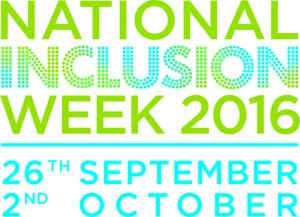
It’s simple. When an organisation is committed to and supportive of diversity, colleagues feel included and business performs better.
The Civil Service’s gender balance at Senior Civil Service (SCS) level is the best we’ve ever seen. But we are still some way from reaching 50%, especially at the most senior levels.
We exceed levels of the UK’s Black, Asian and Minority Ethnic (BAME) working population in our new entrants into the Civil Service. But we still lag way behind in our representation of BAME staff at SCS levels. We also need to do more to strengthen the talent pipeline of BAME colleagues in roles between HEO and Grade 6.
Reports of bullying and harassment levels are low at 10%. But this masks the fact that 23% of Civil Servants with a disability reported feeling bullied or harassed in 2015.
 We have made tremendous progress, but we still have a long way to go to become the UK’s most inclusive employer and to meet a key objective of our vision for a Civil Service that’s truly a great place to work.
We have made tremendous progress, but we still have a long way to go to become the UK’s most inclusive employer and to meet a key objective of our vision for a Civil Service that’s truly a great place to work.
Faith and belief are important to billions of people around the world. According to the 2015 People Survey, 61% of respondents said they have a religion. It is also important to recognise the 39% of respondents who said they had no religion.
Recognising, acknowledging, and accepting the importance of faith, religion and belief, even if it is not important to you directly, is a key element of an inclusive workplace.
I am keen to work with staff networks to consider how we can make diverse voices heard – voices representative of those with a faith, those without one, as well as those of all under-represented groups.
We should all acknowledge the diversity of faiths and beliefs and their ability to bring people together when approached with respect and a desire to build genuine understanding. But we should also acknowledge and respect those without a faith.
Colleagues should feel able and comfortable to bring their whole selves to work. We should encourage people to celebrate and learn from other faiths or beliefs.
 I would like to encourage leaders everywhere to acknowledge and welcome the importance of faith, religion and belief as a part of our inclusive workforce, in addition to all other protected characteristics. This is not only what National Inclusion Week is all about – it's what being A Brilliant Civil Service is about, too.
I would like to encourage leaders everywhere to acknowledge and welcome the importance of faith, religion and belief as a part of our inclusive workforce, in addition to all other protected characteristics. This is not only what National Inclusion Week is all about – it's what being A Brilliant Civil Service is about, too.

7 comments
Comment by Charlotte Smith posted on
What i would like to see in the workplace is the installation of an Ecumenical faith room with all the facilities available to pray during a break, ie provision of prayer mat, Torah, Bible, Koran, Cross, etc and also a visiting interfaith priest that comes say once a month even who would be available for staff to approch in the faith room and can discuss their concerns or even enquire about and join a religion. It is hard for full time staff who are in work all week and especially those who are reliant on public transport for them to attend a place of worship. Not everyone has been welcomed into the fold of their chosen religion as it has been difficult getting the time to attend such things.
Additionally it would also break down the barriers about different faiths as well. I make a point of learning about different religions and faiths. It fascinates me, and i think everyone should broaden their experience and perspective on the world as well.
Comment by Liam posted on
It is good that this issue is being recognised. In the case of Christianity, the faith with which I am most familiar, work is not only acknowledged, but prized and celebrated - Christians are encouraged in the Bible to work hard and work well, following the example of their God who continually works (beginning in the book of Genesis, where he also pioneered the concept of work-life balance in instituting a day of rest). The same may well be true for other faiths - or, indeed, atheism which may also provide its own motivation for hard work and personal fulfilment in the absence of a deity. The very fact that this article has been seen as necessary shows the extent to which at times, public discourse on this issue has tended to seek to relegate faith to the private sphere - often in contrast to other aspects of a person, such as their sexuality. Yet for a Christian, all matters in his or her life are subject to their God - that is precisely what faith means. Indeed it is precisely their faith which often drives them to public service in the first case. I look forward to developments in this area with interest - and encourage others, of all faiths and none, to contribute to the debate.
Comment by Daniel Stapleton posted on
You might like to take a look at the work HMRC have begun to do in recognising beliefs (and no belief) in planning for their new Regional Centre Buildings.
Comment by Terry HEGARTY posted on
Great article. What I'd really like to see across the Civil Service is a chaplaincy service. Using the models adopted in the NHS, Prison Service and Armed Forces would give government departments an additional resource to draw upon in order to provide support and encouragement to people of all faiths or none. Within my own department I'm aware that we have readers from the Anglican tradition, lay preachers from the Baptist movement, street pastors, and many church volunteers....And that's just those of the Christian faith. I've no doubt we can draw upon just as many gifted people from other faiths who can all make really positive contributions to our working life.
Comment by Ros posted on
A wonderful & encouraging article. Great to see faith and how faith plays out in the workplace being acknowledge by the Chief Executive of the Civil Service and Cabinet Office Permanent Secretary.
Comment by Martin posted on
It would be nice to promote the major festivals of Christianity as is done for other faiths. People of other religions do not get offended by Christians celebrating the real meaning of Christmas or the real meaning of Easter, yet public bodies and some private companies use this fictional offence as an excuse to re-brand Christmas as a winter festival, while happily celebrating the special events in other religion's calendars.
Comment by Gaye TIMBRELL posted on
I totally agree Martin and Terry, I am so sad that Amport House is going, as a RAF Widow it was equally important for dependants as well. Now as a civil servant, (ex RAF) I feel it is important to be visable as a Christian, (or other faith) as younger members of the services sometimes need to turn to someone for advice or help or guidance and need to feel comfortable with, maybe of their own faith and someone who will listen.